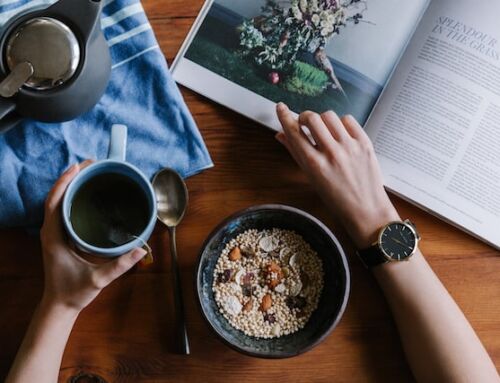While this is a strange time of uncertainty, stress and fear, and you don’t have much control over what is happening in the outside world, you have the power to control your inner world.
There are so many things you can do to take control of your thoughts and perceptions, making constructive, positive changes so that you (and your loved ones) come out the other side of this stronger and transformed. To use a cheesy analogy, we are caterpillars being forced into our cocoons. If we take control of our situation, we can emerge as majestic butterflies.
Here are some great tips to reduce stress, fear and panic:
Media
Switch off the never-ending loop of hyped-up news and step away from social media! Stay informed, but don’t let the media hype feed your fear. Before you buy into an alarmist Facebook post, check the reliability of the source and take the emotion out of it. What you are seeing may be alarming but allowing yourself to get hyped up too is detrimental to your health and wellbeing.
Stop and ask yourself ‘Is there something I can do about this?’
- If the answer is yes, do it! Then, feel amazing that you have the ability to help.
- However, if the answer is no, do your best to let it go. Your mental and emotional energy is far better spent on your own household and loved ones (and yourself!).
Your mental and emotional welfare during this time is incredibly important. To use another analogy, remember the airplane emergency instructions: put your own oxygen mask on before helping those around you. If you don’t look after yourself, how can you look after those around you?
Exercise
Don’t forget about your exercise! Alternatively, if you have previously been too busy to exercise, what an incredible opportunity to start. There are so many options and resources out there. Try searching YouTube for some videos, digging out some old workout DVDs, working with a personal trainer via video chat, signing up to a virtual boot camp, or just plain going out for a walk when you need some fresh air.
Exercise releases endorphins which make you feel happier and reduces stress, depression and anxiety. Just what we all need at the moment! In addition to this, exercise reduces inflammation, improves circulation, reduces your risk of heart disease, helps control weight, helps to manage blood sugar levels, etc.
Relaxation techniques
When you need a little help calming down, why not try the following:
- Yoga, tai chi, meditation, breathing exercises, positive visualisation
- Having a relaxing bath
- Lighting some candles and putting on some relaxing music
- Adult colouring in books (this can be a great form of meditation, especially for those whose minds are too overactive to do traditional ‘quiet the mind’ type meditations)
- Playing an instrument
- Asking a co-isolator for a massage
- Taking a walk in nature
- Being barefoot on the grass – this is called ‘Grounding’. Direct skin contact with the earth’s surface has been shown to reduce inflammation, improve immune responses, improve wound healing, and even prevent and improve chronic inflammatory and auto-immune diseases
Hobbies
Why not pick up an old hobby or find a new one? Hobbies are something that very busy people don’t tend to think of as a high priority, however, they are so important for your mental and emotional wellbeing.
When someone asks you ‘what fills your happy cup’ (as in what do you find fulfilling or enjoyable outside your work and family life), do you know what your answer is? If yes, this is the perfect time to make sure you are doing it regularly. If it’s not something that you can do in isolation, now is the perfect time to find another one.
Some examples include:
- Cooking
- Arts and crafts
- Learning something new
- Playing an instrument
- Gardening
- Getting creative
- Dancing
- Singing
- Martial arts
- Making funny videos to show your friends and family
- Obedience or trick training with your pets
Stay connected
Even though physical distance is separating us all at the moment, technology is bringing us together. You don’t need to scroll very far on social media to see all the amazingly creative new ways people are coming up with to stay connected.
Make sure you stay connected with friends and loved ones. People are hosting video conference dinners, drinks, coffee dates, etc. Why not schedule a regular coffee chat with your best friend, host a family virtual games night, or even create family dance routines and then have video dance battles? The possibilities are endless!
Slow down and re-evaluate
I don’t think we will ever get such a unique opportunity to slow down and re-evaluate our lives. We can’t go anywhere, and some of us can’t even continue to work as much (if at all!). What if we flipped the way we viewed this situation, really questioned our lives, and reinvented ourselves? Then we would truly emerge as majestic butterflies!
Here are some examples to get you started:
- Are you happy with your lifestyle, career, group of friends, fitness, state of health, home décor, etc.?
- What kind of person do you want to be when all of this is over?
- Would you like to have gained a particular skill set or body of knowledge?
- What is important to you?
- What do you value?
- What are you grateful for?
- What do you love about your life?
- What would you like to change?
- What can you do about it?
Have fun!
Its ok to have fun, even when it seems like the rest of the world is in crisis. Fun is important for your mental and emotional AND physical wellbeing, and also for maintaining healthy connections with friends and family.
Throughout history, you can look at any time of crisis and no matter how bleak the situation seems, you can always find examples of people creating ways to have fun. Fun is an escape; it lets you momentarily forget your worries. Furthermore, fun creates laughter and joy, which lower blood pressure, reduce stress hormones, and can also have a positive impact on immune health.
If you are struggling
Lastly, if you are having a hard time pick up the phone and talk to someone. Talk to someone you trust like a friend or family member and be open about how you are feeling. It is highly likely they will have felt the same way at some stage.
Below are some additional resources:
- Mental Health Line: 1800 011 511
- Lifeline: 13 11 14
- Kid’s Helpline 1800 55 1800
- Beyond Blue 1300 22 46 36
- Men’s Line Australia 1300 789 978
Yours in health,
Belinda Babicci




